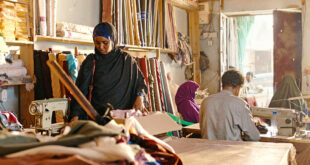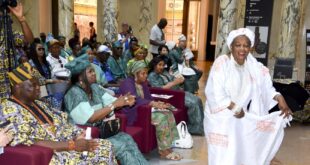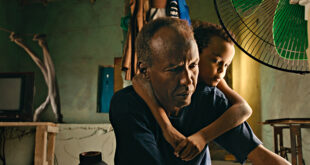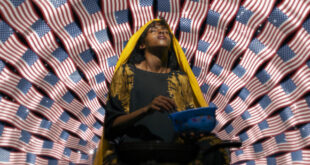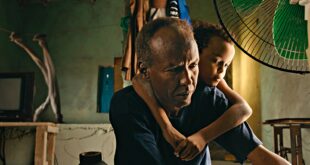In 2014, the French comedy “Qu’est-ce qu’on fait au Bon Dieu” (English title: “(Bad) Weddings”, German title: “Monsieur Claude und seine Töchter”) became the summer hit in Germany after the film had already broken box office records in France.
In Germany, almost 4 million movie tickets were sold. In France the film in which a White French middle-class Catholic couple despairs when their four daughters get married to men of different races and religions, drew over 12 million cinema goers into the theatres, making it the second most successful French Film in the country’s history.
Such success demanded a sequel and in 2019 the entire cast was reunited in a new culture-clash comedy.
This summer, “Monsieur Claude und sein grosses Fest”, the third film in the series which was released on Thursday, is also already breaking records by being by far the biggest release of a European film, screening in over 655 cinemas simultaneously in Germany alone!
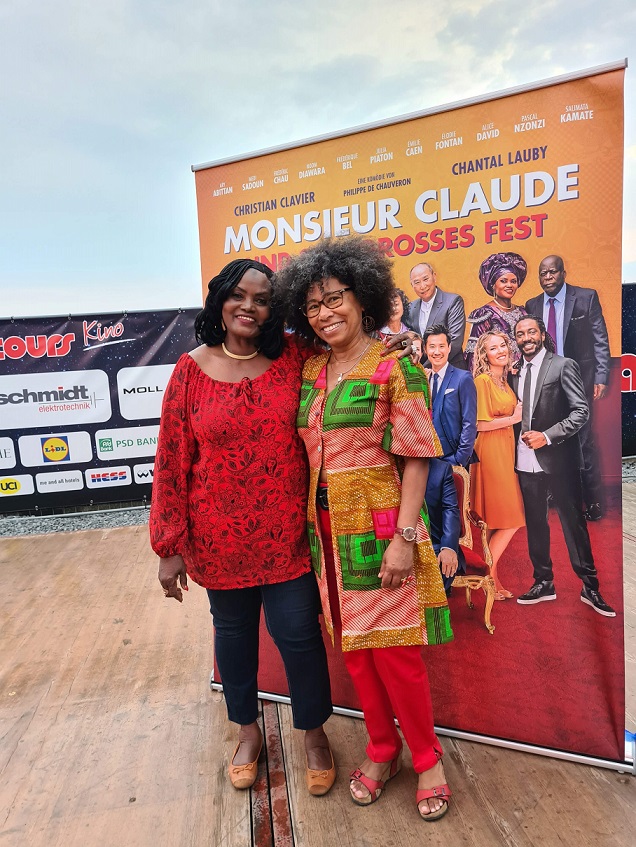
One of the film series permanent cast members is the Franco-Ivorian actress Salimata Kamate, who plays Madelaine Kofi, the mother of Monsieur Claude’s Black son-in-law. She gave her European film debut in 2011 in “The Intouchables” where she played a mother too – the mother of Omar Sy’s character Driss.
That film was also a huge success, in fact it was the most successful French movie that year and such a hit, that Hollywood decided to film a remake. Incidentally, the remake (“The Upside”) starring big Hollywood names like Nicole Kidman and Kevin Hart grossed less than a quarter of what the French original did at the box office.
Even though Salimata Kamate has starred in two of the top 10 French films of the last 50 years and her other films have also been box office hits, there is almost nothing to be found about the actress on the internet. There’s no Wikipedia entry, and even the IMDB (Internet Movie Data Base) provides no information other than an incomplete filmography. And this, despite the fact that her films were huge hits not only in France, but internationally as well.
Salimata Kamate is currently in Germany to promote her latest movie and our contributing editor Tina Adomako spoke to her at the movie’s premiere in Düsseldorf.
——
Ms Kamate, all your films have been box office hits. Despite such amazing success, I found almost nothing about you on the web whilst preparing for this interview. Are you just a very private person or is there some other explanation for this lack of information? Does your being African perhaps play a role? A white actress with a similar track record would not only grace numerous magazine covers, but the web would also be full of news about her.
I don’t think it necessarily has to do with racism. It has to do with the fact that I myself don’t have that much to do with the internet, I don’t really know my way around with all these social networks. And to be honest, I don’t like what goes on there. It’s true that social networks make people known or more famous, but people use them badly and that discourages me from moving around or spending much time there. So I limit myself to my job and to conversations, like this one we are having. That’s where I talk about what I want to talk about.
In the few places where your name does appear, you are listed as a French actress. Is that how you describe yourself, or are you also or perhaps even more an Ivorian actress? Also, how did you get involved in film?
I only recently started living in France. I got permanent residency for France just 2 years ago. Up until then, I had been living in Africa and needed a visa to come to France. So I wasn’t really present in France. I was commuting back and forth. I just wanted to work and then go home again. But then the civil war in the Ivory Coast forced me to leave. Even then, it wasn’t France I first moved to, but Nigeria. So I definitely see myself first as an Ivorian. I would call myself an African actress, not a French one. I had acted in a popular Ivorian sitcom and in a number of other African productions such as “Le Paris de l’amour”, “La femme de l’autre”,” Moussa le taxis man” – long before I acted in Les Intouchables in 2011.
Do you think the “Mon. Claude” films have led to more tolerance and less racism against people of African descent in France and elsewhere? After all, millions have seen the films which use humour to call out prejudice and discrimination.
Yes, over 12 million people saw the first film (in France). The film was a talking point. Unfortunately, racism is everywhere, all over the world, and very clearly also in French society. In the film, we try to point out prejudices and racism using humour. You laugh about it and maybe you think about your own prejudices whilst watching the film, or afterwards when you go home.
With humour it is easier to convey and digest such topics. I think the film can contribute to people reflecting more on their own biases, on their own racism. The fact that the films have been so well received tells me that people liked them. When they see the younger generation marrying across borders and nationalities, their children being brought up multi-culturally, they realise that that kind of scenario is becoming more and more the norm. If the new film is a similar success, my hope is that it will help to reduce racism a little.
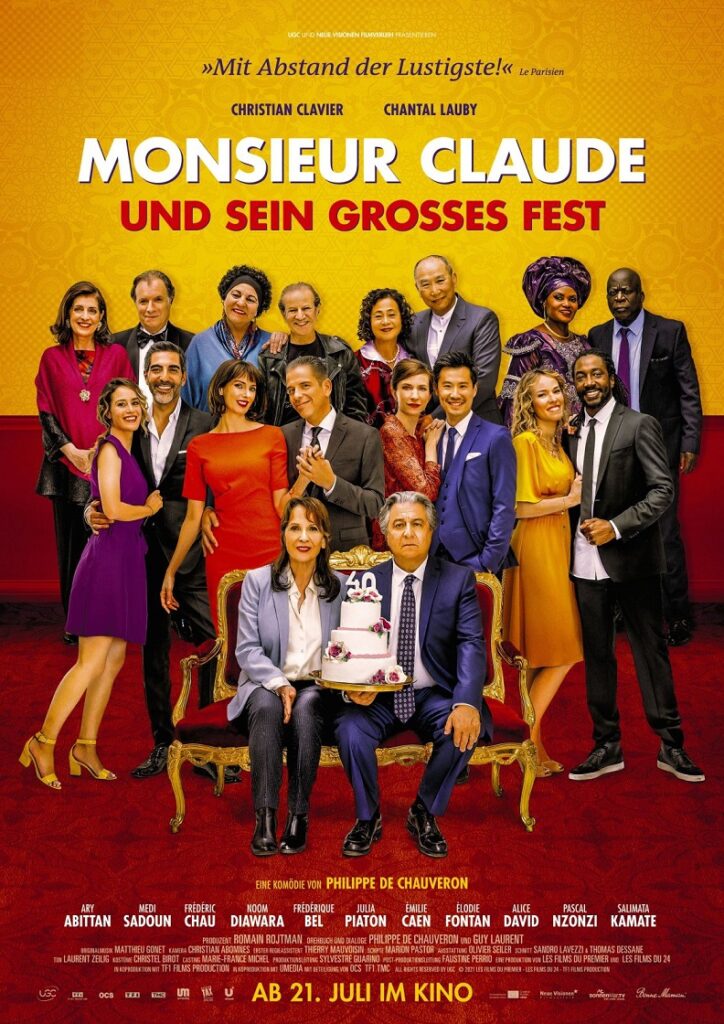
How do you find the German title which makes an old white man “Mon. Claude” the focus, while the French titles “Qu’est-ce qu’on fait au Bon Dieu / Qu’est-ce qu’on a encore fait au Bon Dieu? / Qu’est-ce qu’on a tous fait au Bon Dieu? (Translated: What have we done to the good Lord? / What have we done to the good Lord this time? / What have we all done to the good Lord?) are much more inclusive?
Very right. The French titles include everyone. Maybe the German title was chosen because Christian Clavier is a big star, someone who is very well known. Maybe they thought focusing on him as the main figure on the posters would draw more people into the cinemas. So maybe that’s why they titled the film after his character. But the original title includes and involves more than just Claude. It includes the sons-in law and their families, it asks: what have “we all” done?
It’s not only Claude who harbours prejudices. Misconceptions abound. The Kofis have their biases too. I certainly like the French title a lot better. The German one talks only of Claude Verneuil and his daughters. But there are so many other characters in the film., that the German title ignores. There all these families, the Arab, the Jewish, the Chinese and the West African parents. The African parents, the Kofis, are featured in all three films. We come to France and get on Claude’s nerves every time. So the German titles certainly don’t do justice to any of that.
You’ve acted in two of the most successful French movies ever. Can you still walk the streets freely in France?
Well, I do get recognised and very often people stop and ask me for an autograph, but if I want to, I can move around more or less incognito. As a Muslim woman, I just wear a headscarf and then people don’t recognise me at all, and I can move around freely, just like anyone else.
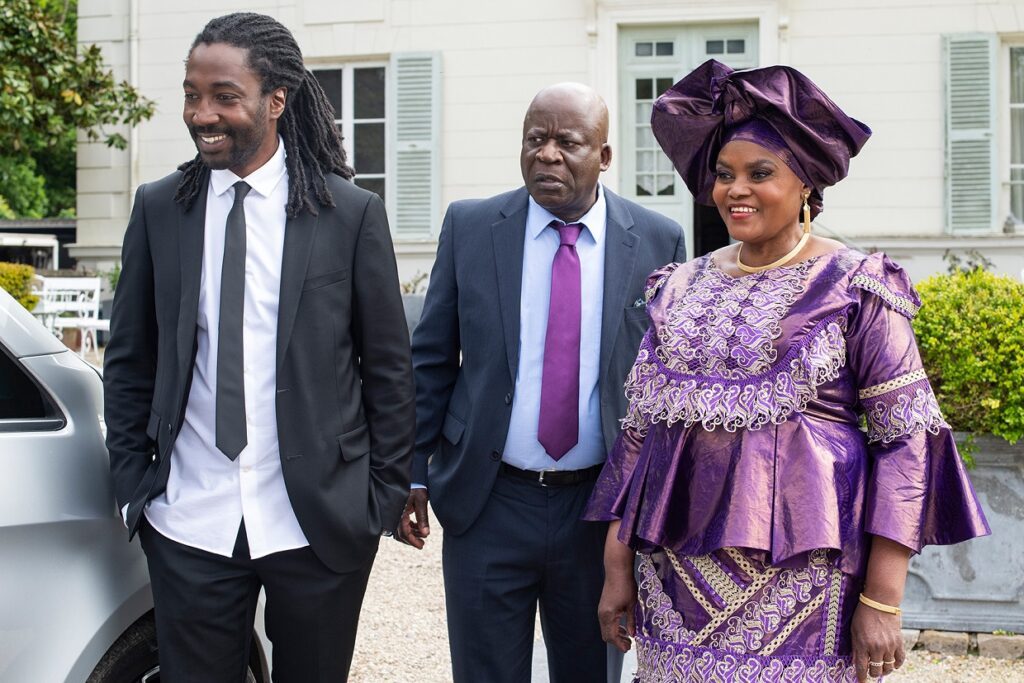
That brings me to the next question. In the “Mon. Claude” films your Madelaine is a staunch Catholic, although you are Muslim yourself. Were there challenges to playing that role?
No, it wasn’t a problem at all. I attended a Catholic school as a child, because my dad said it was a good school and so he sent me there. And I’d come home from school and say Catholic prayers and at Christmas, when they’d show Christmassy stuff on the television, I’d sing Christmas songs, and my mom would panic and say, oh dear, oh dear, she’s turning into a Catholic! Then my dad would try to calm her and tell her not to worry. So anyway, I know a lot about the Catholic religion.
What role does religion play in your personal life if that isn’t too private a question?
I am a very religious person and God plays a very important role in my life. I believe that my whole life through, he has guided all my steps. He is the reason for my success, the reason I am where I am today.
In the four films you’ve acted in so far, you’ve always played a mother. Are you also a mother in real life? And if yes, are you a typical “African Mama” like the one in your roles?
I have a son, he’ll be turning 24 next month. So yes, I’m a mama. But not necessarily like the ones I play. There’s a bit of me in each role, but I am not Madelaine.
Thank you so much, Salimata Kamate, for taking the time for this interview. The African Courier wishes you a lot of success with the new movie and with your acting career.
 THE AFRICAN COURIER. Reporting Africa and its Diaspora! The African Courier is an international magazine published in Germany to report on Africa and the Diaspora African experience. The first issue of the bimonthly magazine appeared on the newsstands on 15 February 1998. The African Courier is a communication forum for European-African political, economic and cultural exchanges, and a voice for Africa in Europe.
THE AFRICAN COURIER. Reporting Africa and its Diaspora! The African Courier is an international magazine published in Germany to report on Africa and the Diaspora African experience. The first issue of the bimonthly magazine appeared on the newsstands on 15 February 1998. The African Courier is a communication forum for European-African political, economic and cultural exchanges, and a voice for Africa in Europe.















